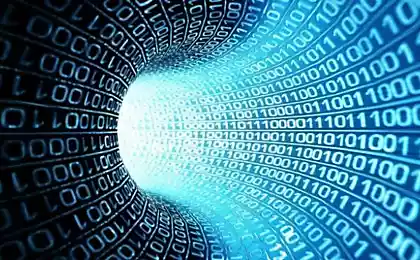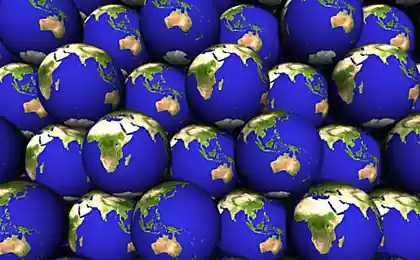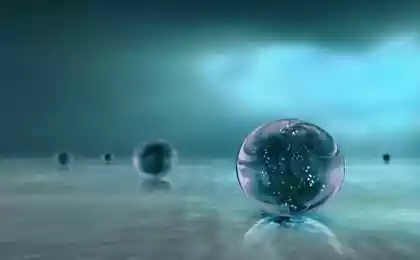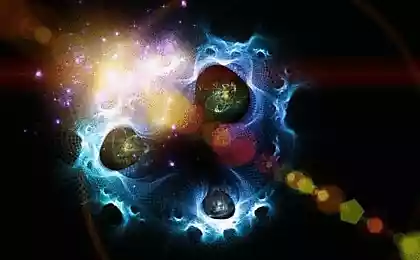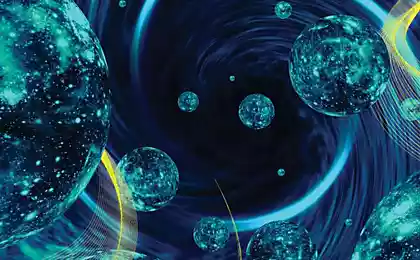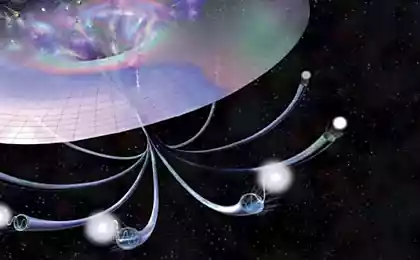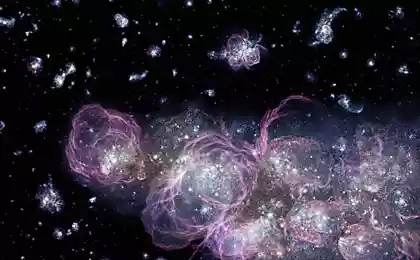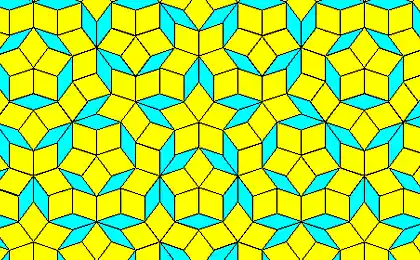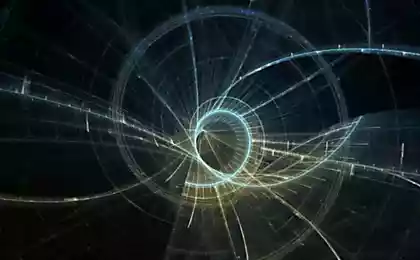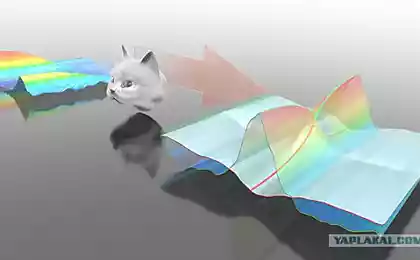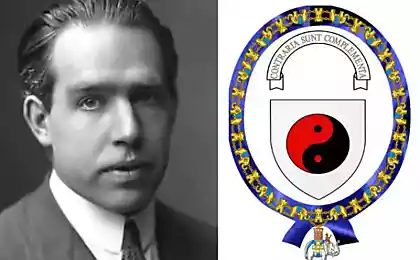284
9 Strangest Consequences of Multi-World Interpretation

According to a multi-world interpretation of quantum physics, we live in an infinite network of alternate universes. This is a serious statement that carries certain and extremely serious scientific, philosophical and existential consequences. Let's look at ten of them.
According to the hypothesis of the creator of the many-world interpretation of quantum mechanics, Hugh Everett, we live in a universe, more precisely in a multiverse, in which many successive worlds are constantly being born and branched out, each of which has a different version of you.
Quantum physicists have used many-world interpretations to address a nasty flaw in the Copenhagen interpretation, namely the claim that an unobservable phenomenon can exist in two states. That is, instead of claiming that Schrödinger’s cat is both alive and dead, the many-world interpretation is that the cat simply “branched” into different worlds: in one it is alive, in another it is dead.
60 years after its introduction, the world-wide interpretation remains a controversial issue. In a 2013 survey of quantum physicists, only a fifth indicated that they welcomed a multi-world interpretation (compared to 42 percent of physicists in Copenhagen). Nevertheless, among the supporters of the multiverse there are very eminent scientists from the field of quantum physics - David Deutsch, Scott Aaronson, Sean Carroll.
No matter what state this theory is in, it is extremely interesting to reflect on its implications.
We live in a giant multiverse.Cosmologists accept the fact that the world we observe is one as a matter of course. Thinking about the multiple universe has long been considered a scientific heresy, but the likelihood that this is true is growing more and more. Physicists and metaphysicians, cosmologists, anthropologists, quantum fanatics, all begin to think about it.
The basic claim of the multi-world interpretation is that everything consists of a quantum superposition of an unimaginably large—or infinite—number of universes. If this interpretation is correct, there must be an astonishing number of alternate worlds.
The integrity of your life is an illusion
MMI also violates our notion of identity. We all see our lives as a journey through space and time. In reality, we are an exponentially growing set of events that branch out from moment to moment. As a result, we must think of ourselves not as a person, but as a fractional part.
The reason for this illusion is that multiple experiences are impossible to experience, so we are left with the realization that we are one person. But this does not mean that our experience of reality is real or genuine. We must recognize – through MMI – that our lives are not exactly what they seem.
There are many versions of you.If MMI is correct, there is an almost infinite (or infinite) number of versions of you, each of which perceives the world as a separate person and is unaware of the existence of other versions. Therefore, the volume of alternative life paths is extremely large. Since birth, you—or what you think you are—have branched out into different worlds. The complete set of you is a massive root system that grows exponentially, and each root represents a new life.
Since MMI implies constant variability, depending on probabilities, each new instance of you should be different, observing the world in which an alternative outcome of the events of your life occurred. Therefore, there are worlds in which you still live with exes, are more or less successful, have already died or have experienced the death of loved ones who are alive in the present world. There may even be malicious versions of you where you are terrorists or murderers. The possibilities are almost limitless until the basics of physics are broken.
You still have free will.
Given that all possible decisions will be made by different versions of you, it is quite difficult to explain the issue of free will. If all the choices are already made in alternate worlds, why go through all the trouble, weighing the pros and cons, making decisions? The collective fate of your alter egos is already predetermined, the choice is made for you.
MMI expert Michael Clive-Price points out that while all decisions have been made, some are made more often than others. In other words, each branch of a solution has its own “weight” that influences the ordinary laws of quantum statistics.
In addition, MMI would mean a certain non-determinism of being, albeit in a non-intuitive way. Whenever we ask, “Could I have made a different decision or acted differently?” the MMI responds that yes, of course. Not just you, but an alternative version of you. And that’s why you chose this option, achieved some results, it all comes down to the influence of quantum events on classical objects – including the thinking in your head.
There may be strange worlds out there.MMI necessarily leads to very strange opportunities. Again, all branching points are possible as long as you do not violate the laws of physics. It is important to note, however, that given the sheer volume of all sorts of worlds, it is more likely that you will find yourself in the most possible and rational of the worlds, as they arise with high frequency.
But there are worlds where strange things happen. For example, someone flips a coin 1,000 times, and with that comes a world in which they throw a tail 1,000 times in a row.
There are also worlds in which someone will guess all the predictions of sports matches. Worlds in which a person without a musical education, having first seen the piano, will play the 3rd piano concerto Rachmaninov, as the maestro himself would play. The chances of such an event, however, are negligible and go beyond astronomical probabilities, although there are certainly infinitely possible options.
However, it is this point that skeptics distinguish as the most acute, reducing the rationality of MMI to a minimum.
You are in some way immortal.This thought experiment is called quantum suicide. Imagine a situation in which a person is playing Russian roulette, in which half of the revolver’s drum is loaded with bullets. In such a superposition, each turn of the drum will throw off a person's chances of suicide by up to 50/50. But MMI tells us that there must be a world in which a man never shoots himself even after 50 drum turns. Although the chances of it happening are nearing zero, it must happen somewhere.
Curiously, physicist Max Tegmark says the experiment could serve as proof of MMI, only requiring the death of many people before one lucky person gets to the finish line.
Another view of quantum immortality argues that a version of ourselves must always exist to observe the universe. Paul Halpern, author of Schrödinger's Cat, put it this way:
“What is human survival? We are all a collection of particles set by quantum rules at the deepest level. If every time a quantum transition occurs, our bodies and minds split, there will be copies that survive every possible outcome, including one that determines whether we live or die. Suppose, in one case, a particular set of quantum transitions leads to improper cell distribution and causes a deadly form of cancer. For every transition, there will always be an alternative that doesn't lead to cancer. There will always be branches with survivors. Add to this the assumption that our consciousness will always be in living copies, and we can survive any number of potentially dangerous events associated with quantum transitions.There may be a connection between parallel worlds.
In 1995, quantum physicist Rainer Plaga proposed to experimentally test MMI, describing a procedure for “inter-world” exchange of information and energy through “weak communication”.
With standard quantum-optical equipment, a single ion can be isolated from its environment in an ion trap. A quantum-mechanical measurement can then be made with two separate results on the example of another system, thereby creating two parallel worlds. Depending on the result, the ion will only be excited in one of these parallel worlds before the ion decoherence occurs as the environment interacts. Plaga argues that we could detect this excitation in another parallel world, which would provide MMI with evidence — and provide a possible way to send a message to a parallel reality.
No paradoxes of time travelIt is simple: the presence of alternative worlds will mean the absence of a single timeline on which to move.
If one travels back in time, it means moving into entirely new temporal paradigms. Accordingly, in MMI, paradoxes like going back in time and killing a grandfather simply do not find a place.
It has happened before and will happen again.The most interesting consequence of an infinite number of worlds is that everything has already happened. There will be an infinite number of times.
Source: hi-news.ru
